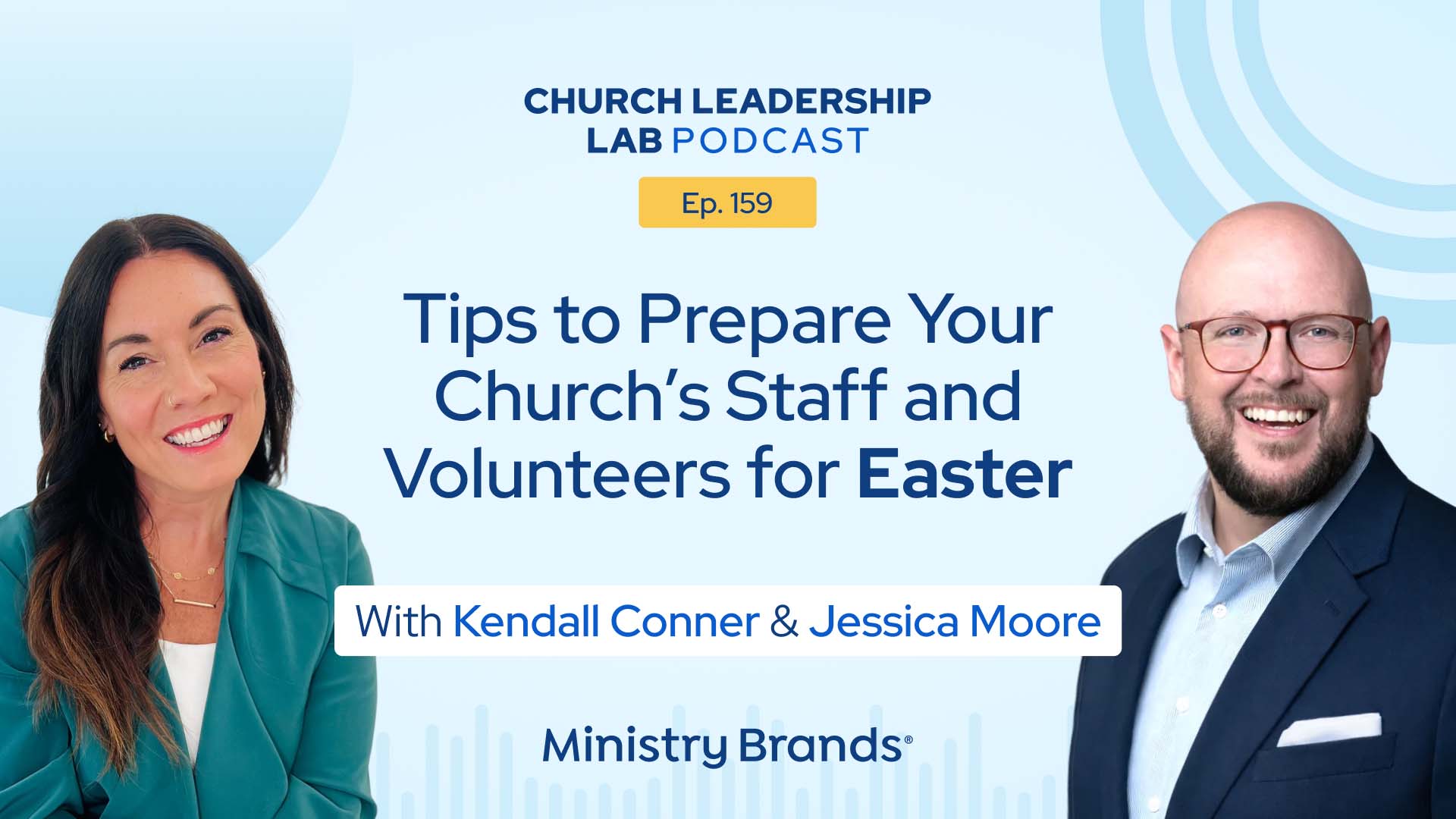10 Important Features of Church Management Software
Church Management Software (ChMS) has important features that help churches run their ministries, congregation, and operations more effectively. Important features include member management, donation tracking, event scheduling, volunteer management, communication tools, reporting tools and a lot more. These features are very important for making administrative chores easier, communication better, and keeping the church running smoothly so it remains focused on its mission and ministry work.
The 10 important features of church management software are listed below.
- Secure Check-In System: A secure check-in system helps keep children and other vulnerable members safe by making sure they are who they say they are before letting them into certain places. Parents get peace of mind, and churches are able to keep their buildings safe for their members.
- Flexible Member Database: A flexible member database lets churches store and manage detailed information about each member, like how to call them, how often they attend church, and how much they give. It makes it easy to keep track of things and be more personal when talking to members.
- Communication Tools (Email, Text Messaging): ChMS's communication tools make it easy to send emails and texts to other users. These tools help make sure that people know about events, services, and church news on time, which increases their total engagement.
- Attendance Monitoring and Reports: Features for monitoring attendance help keep track of members' attendance at services, classes, and events, giving church leaders thorough reports. It lets churches see patterns and make choices about their programs based on facts.
- Multiple Giving Options (Online, Text, Mobile): The different ways to give allow church members to give money in different ways, such as through websites, text messages, or mobile apps. It makes it easier for donors to give by making it easier for them to get to and use.
- Financial Tracking and Reports: ChMS's financial tracking tools help churches keep an eye on their income and spending, making sure that their financial records are correct and up to date. Another thing they do is make reports that help with budgeting, audits, and paying taxes and make things clear.
- Volunteer Management and Scheduling: The volunteer management and scheduling features make it easier to find volunteers, give tasks, and keep track of them. These tools help churches make sure they have the right people for each ministry and service, which makes things run more smoothly and organized.
- Event Registration and Scheduling: Tools for setting up and registering for events make it easy to plan and organize church events like services, meetings, and community outreach programs. These features let church members sign up for events and help staff keep track of who is coming and how many people are there.
- Leadership and Member Engagement Features: Parts for leadership and member participation let church leaders keep an eye on how members are growing spiritually and getting involved. These tools help people in the church community connect with each other better and build relationships that matter.
- Small Group Management: Features for small group management help churches set up and run small groups like Bible study groups. These tools make it easier for small group leaders to communicate, make plans, and keep track of who is attending, which makes sure that every group runs smoothly.
1. Secure Check-In System
A secure check-in system is a feature of Church Management Software (ChMS) that keeps kids, teens, and other people who come to church events safe. Its goal is to make it easier to check people in and out by using printed name tags, barcodes, or PIN codes and online keeping track of attendance. The approach is important because it makes kids safer, stops people from picking them up without permission, and gives emergency contact information when it's needed. It works by letting families check in at self-service kiosks or mobile devices. The information is stored safely, and only authorized staff are able to view it.
2. Flexible Member Database
A flexible member database is a central digital repository that stores full profiles of church members, including contact information, family relationships, previous attendance, giving history, and ministry involvement. Its goal is to help churches stay in touch with their members and make their efforts to engage members more effectively based on what those members do. The feature is substantial as it improves pastoral care, communication, and total member participation. It works by letting staff enter, change, and sort data in real time, making sure that correct records are kept so that smart decisions can be made.
3. Communication Tools (Email, Text Messaging)
Communication tools in ChMS let churches send emails, text messages, or in-app reminders to groups or to specific people. The goal of these tools is to keep in touch with members, volunteers, and church leaders in a regular and timely manner. These tools are important because they get people involved, let people know about future events, and let people share important news right away. They work by connecting to the member database, which lets churches divide their audiences into groups and send texts automatically based on set times or triggers.
4. Attendance Monitoring and Reports
Attendance monitoring and reporting capabilities enable churches to track who attends services, classes, and activities over time. The goal is to look at participation trends, find members who aren't involved, and judge how well the church is doing. It is important because it lets leaders reach out to members and care for them before they need to. Mobile apps or kiosks are used to digitally record attendance, and then visual reports are made that show patterns of attendance and growth data.
5. Multiple Giving Options (Online, Text, Mobile)
Multiple giving options refer to the ability for members to donate via internet platforms, text-to-give, and mobile apps. The goal is to increase the congregation's accessibility and convenience of financial contributions. Giving people the freedom to give whenever and however they want is a key aspect that makes donations more likely. It works by adding safe payment gateways to the ChMS. It lets donations be tracked and sent immediately to the right funds.
6. Financial Tracking and Reports
Financial tracking and reporting technologies enable churches to keep track of all financial activity, such as tithes, offerings, budgets, and costs. The goal is to keep things open and make sure that church resources are managed responsibly. The feature is useful because it helps members follow tax rules, helps with budgeting, and builds trust with them. It syncs with donation tools and accounting software to make thorough financial reports, summaries, and end-of-year reports.
7. Volunteer Management and Scheduling
Volunteer management and scheduling tools allow churches to organize, connect with, and assign volunteers for a variety of ministries and activities. The goal is to make teamwork easier and make sure that everyone does their job well. The tool is useful because it makes things more organized, clears up scheduling issues, and gets more volunteers involved. A central dashboard lets managers set shifts, send reminders, and let volunteers sign up for work or trade shifts.
8. Event Registration and Scheduling
Event registration and scheduling features help churches organize and plan events by letting people sign up online, book their spots, and get updates. The goal is to make planning events easier and less stressful for administrators. The feature is important because it makes it easier to keep track of attendance, plan for capacity needs, and gather information like food tastes or requests for special accommodations. Making event pages that are linked to the ChMS lets people sign up, pay (if needed), and get confirmations.
9. Leadership and Member Engagement Features
Leadership and member engagement features are designed to help church leaders keep track of members' involvement, personal growth, and spiritual growth. The goal is to give people ideas that will help them become better followers and leaders. It is important because it leads to stronger connections, more responsibility, and ministry that is planned. It works by putting together logs of contact, giving, volunteering, and attendance into a single profile that leaders can use to see how engaged and needed members are.
10. Small Group Management
Small group management tools help start, keep an eye on, and grow small groups like Bible studies, prayer circles, and get-togethers based on shared interests. The goal is to help people in the larger congregation feel more connected to each other and to the neighborhood. Small groups are important for relational ministry and spiritual growth, so the feature is highly significant. It works by giving leaders a portal where they are able to plan meetings, talk to group members, keep track of attendance, and manage the schedules for each group.
What is Church Management Software?
Church Management Software (ChMS) is a computer program that helps churches and groups run their daily business, connect with members, handle money, plan events, and talk to people. It puts all the important administrative chores in one easy-to-use system, which helps church leaders serve their members better. ChMS is important because it cuts down on administrative work, makes contact easier, and gives useful information by tracking and reporting data. As churches get bigger and more complicated, they need a reliable Church Management Software to keep things organized, clear, and connected across the whole church.
What does ChMS do?
The Church Management Software (CMS) takes care of important church jobs by automating them, like keeping track of attendance, processing donations, planning events, communicating with members, and organizing volunteers. It is done by combining different tools into a single digital platform. It lets church leaders keep an eye on the health of the ministry, keep correct records, and get members more involved. It is how ChMS helps churches save time, get better results, and focus more on spiritual service rather than manual management.
How does ChMS improve Church Management?
ChMS improves church management by giving them a central place to handle everything, from caring for members and collecting gifts to making plans and sending out reports. Multiple tools that aren't connected to each other and manual spreadsheets are no longer needed. It, instead, automated, real-time processes that improve accuracy and output are used. The unified method helps make better choices, gets members more involved, and organizes the structure of the ministry better.
What are the Benefits of Church Management Software?
The benefits of church management software are listed below.
- Automates Administrative Tasks: Simplifies scheduling, reporting, and communications, while reducing manual tasks.
- Easy to Handle Donations: Saves donations, sends receipts automatically, and able to give online, by text, or on the phone.
- Enhances Communication: Uses SMS or email to send personal updates or mass messages.
- Manages Events and Volunteers: Makes it easier to schedule volunteers and plan events.
- Keeps Clear Records of Finances: Makes real-time financial records and makes sure that everyone is responsible.
- Boosts Member Participation: Boosting the member participation is one of the benefits of church management software. Keeps track of attendance, participation, and spiritual growth so that outreach is more targeted.
- Helps with Growth and Scalability: Features that are flexible allow the system to adapt to changes in church size.
What are the Best Church Management Softwares?
The best church management software are listed below.
- Ministry Brands: Ministry Brands provides a range of solutions designed specifically for churches. It is one of the best church management software because it has features for contact, giving, and managing people.
- Realm by ACS Technologies: It focuses on building church communities and has tools for giving, accounting, and pastoral care all in one place.
- Breeze ChMS: Breeze ChMS is a simple, easy-to-use app that works well for small to medium-sized churches. It has important features like tools for keeping track of members and communicating with them.
- Planning Center: Planning Center tool is known for being modular, which means that churches are able to select the tools they need for contact, services, and volunteers.
- ChurchTrac: ChurchTrac is a cheap ChMS that has powerful tools for budgeting, check-in, and managing people.
Is it easy to choose a ChMS?
No, choosing a Church Management Software is not always easy, because every church has different needs based on its size, budget, mission structure, and level of technical knowledge. There are lots of great choices, but it is hard to choose because there are so many features, pricing plans, and learning curves to consider. It's important for churches to think about how easy it is to use, how well it integrates with other systems, how it keeps members involved, and how safe it is. Any church that wants to buy a system needs to have a guide to choosing ChMS and carefully look at its goals and how things work now.
How can Ministry Brands assist your Ministry?
Ministry Brands assists your ministry by giving churches a full environment of digital tools that help them do their work. Some of these tools are websites for churches, mobile apps, scheduling volunteers, ChMS, and platforms for contact. Ministry Brands makes it easy for ministries to focus on people and teaching rather than paperwork by centralizing operations and automating routine tasks. Ministry Brands helps churches of all kinds and types grow both administratively and spiritually by giving them scalable solutions and expert support.




